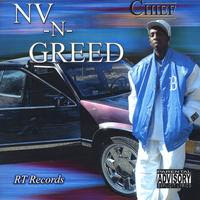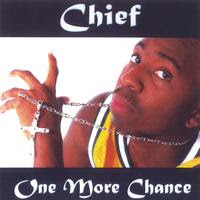I found this on Aol.
Preston
______________________________
Fired Over Fantasy Football: The Unfortunate Case of Cameron Pettigrew
From Fantasy Fanhouse/Aol.com
On the surface, Cameron Pettigrew seems a lot like many people you might know. A young, ambitious guy who felt he found his ideal job at Fidelity Investments in Westlake, Texas. He even joked one time about getting a Fidelity tattoo.
Good thing he didn't.
In late October, Pettigrew and three other fantasy football league commissioners were fired by Fidelity. Pettigrew, a distinguished employee in the Private Client Group who had been with the company for two and a half years, was left scrambling for further explanation. Pettigrew said he never received a single verbal or written warning before his dismissal.
His slip-up had overridden an impressive resume, which contains multiple company honors, including being the only person chosen for an exclusive, 10-member program (Future Leaders of Westlake) who was not already in a management position. Three weeks before his firing, he was offered a position at Fidelity's prestigious Wall Street branch, but Pettigrew said he chose to decline the offer due to the high cost of living in New York City.
"I loved my job, my coworkers, and frankly, I loved Fidelity. I practically begged to have my job back," Pettigrew told FanHouse. "I spent weeks trying to appeal my termination ... I even said I would take a demotion if they accepted me back."
Pettigrew was commissioner of a $20 entry fee league with nine other employees. According to Pettigrew, those other nine league members -- which included three team leaders and a manager -- were simply given warnings and got to keep their jobs. "They are all dear friends of mine and I would never want for them to be fired or additionally reprimanded," said Pettigrew, "but the way in which Fidelity applied our punishment was flawed and unequal."
According to Pettigrew, he was questioned by two company investigators for an hour and a half, where they wanted to know everything he knew about fantasy sports at the Westlake site. "They were insistent upon knowing about everyone involved, especially leadership, and whether those persons even mentioned a league," said Pattigrew. "I kept thinking, 'All of this over a $20 fantasy football league?' "
In the past, Fidelity made it known to employees via e-mail that participation in fantasy sports activities is not permitted on company time. However, Pettigrew says "nobody at the entire Westlake site took the policy seriously." He claims there are numerous different active leagues at Fidelity and team leaders, managers and directors discussed fantasy sports regularly. For many participants, fantasy sports is considered a harmless hobby that has potential to bolster camaraderie between employees and overall morale.
When FanHouse contacted Fidelity for details on the policy Pettigrew violated, FanHouse was told by spokesman Vin Loporchio that the company doesn't comment on either current or former employees "out of respect for their privacy and confidentiality" and that nothing should be construed from the lack of a comment.
"The only official communication I ever received about Fidelity's policy against fantasy sports was a very generic e-mail which could easily be overlooked," said Pettigrew. "We were definitely never told that this could be a 'fireable' offense."
According to Pettigrew, that fireable offense included two incoming instant messages from league members, wherein brief conversations followed about teams and players. "Those two messages were received when I was idle and not in contact with any clients."
The league Web page, which was hosted on Yahoo! Sports, is blocked from access on work computers, according to Pettigrew, so members did not check their lineups on company time. And he claims the $20 league buy-in was only paid by a couple of guys on work property. "I only accepted the money during a scheduled break or after work, so I thought I was not doing so on company time."
Despite his appeals to Fidelity, Pettigrew was labeled with a stain on the Termination Explanation of his U5 form (Uniform Termination Notice for Securities Industry Regulation) ... VIOLATION OF COMPANY GAMBLING POLICY INVOLVING FANTASY FOOTBALL.
"They see the word gambling and it's as though I am toxic," said Pettigrew, who made note of the tough economy. "I have been blackballed in my industry."
According to Pettigrew, his department director and local leadership fought hard for his job, but he was considered an "organizer of gambling activities" by the corporation, because he was commissioner of the league.
Interestingly, Pettigrew says he never played fantasy football before coming to Fidelity. "Last season I was approached by one of the managers who asked that I be in his league. I knew vaguely about the policy at the time but figured that if a manager was involved than the rule was probably just something of an outdated law, like how it's illegal in Michigan for a woman to cut her own hair without asking her husband first."
In a statement offered to the Fort Worth Star-Telegram last week, Fidelity spokesman Vin Loporchio said: "We have clear policies that relate to gambling. Participation in any form of gambling through the use of Fidelity time or equipment or any other company resource is prohibited. In addition to being illegal in a lot of places, it can also be disruptive. We want our employees to be focused on our customers and clients."
That "gambling" label has drawn the ire of leading Fantasy Sports Trade Association members. While fantasy sports may be considered gambling in a minority of states, it has been deemed one of the exemptions in the Unlawful Internet Gambling Enforcement Act, according to Professor I. Nelson Rose, who is a published expert on gambling law.
Paul Charchian, president of the Fantasy Sports Trade Association, had this to offer: "No fantasy sports company has been the subject of prosecution for gambling. No person has been the subject of prosecution for gambling related to fantasy sports participation."
A former Fidelity employee, who spoke to FanHouse on the condition of anonymity, claimed: "Saying the word 'gamble' at Fidelity is like saying 'bomb' on an airplane." He also alleges that "Fidelity likes to make examples out of people and this was probably seen as a good opportunity to do so."
With the evidence available, this seems more of a corporate culture issue than anything. On one hand, you could just ignore Pettigrew's strong track record and say company policy is company policy, end of story. Even if any given policy outlaws fantasy sports, or for that matter, Facebook usage and 15-minute smoke breaks. On the other, you can show leniency and let him off with probation, or perhaps even soften the termination explanation on his U5 form to exclude "gambling".
In a way, Pettigrew and three other employees are out of work because they were fantasy league commissioners -- the "organizers" -- and therefore the easier targets for Fidelity to exhibit that said activities will not be tolerated.
Certainly, it's not the first sympathetic termination story we'll hear, and it won't be the last. Yesterday, a woman e-mailed FanHouse to say her daughter was fired after eight years of service for bringing a one-pound puppy to work to show her friends for five minutes. One year later, she claims her daughter still can't find a job.
Sounds outrageous? In these times, you can believe it.
In the meantime, Cameron Pettigrew is available for employment.
He just wishes he could have his job and his life back.
A blog for lovers of the printed word (novels, short stories, poems--the Ing so to speak), popular film, politics, and casinos (the Bling).
Friday, December 18, 2009
Subscribe to:
Post Comments (Atom)
Lipshitz 6

Reading T Cooper for Christmas
Click Here to Purchase Lipshitz 6
Punk Blood

Jay Marvin
Click Here to Purchase Punk Blood
Breath, Eyes, Memory

Anonymous Rex

Reading Eric Garcia for Christmas
Click Here to Purchase Anonymous Rex
Vinegar Hill

Reading A. Manette Ansay for Christmas
Click Here to Purchase Vinegar Hill
Nicotine Dreams

Reading Katie Cunningham for Christmas
Click Here to Purchase Nicotine Dreams
Junot Diaz

Pulitzer Prize Winner!!!
Click Here to Purchase The Brief Wondrous Life of Oscar Wao
Edwige Danticat

New Year's Reading
Click Here to Purchase Brother I"m Dying
Greed

This Brother Is Scary Good
Sweet Music
One More Chance

The genius Is At It Again/The Rapper CHIEF aka Sherwin Allen
Sandrine's Letter
Check out Sandrine's Letter To Tomorrow. You will like it, I insist.
Sandrine's Link
Cool Sites
- Akashic Books
- All or Nothing (My Other Blog)
- Asili The Journal
- Best Gamblling News Site
- Black Star Review
- Book Remarks
- Booktour.com
- Carolina Wren Press
- Click Here for Some Pretty Good Writing Contests
- Dedra Johnson
- Enrico Theoc
- Felicia Luna Lemus
- Florida Book Review
- Foreword Magazine
- Gambling Is Linked to Suicide
- Gambling Is Not Linked to Suicide
- Gaming Law Review
- Gene Durnell's The Thinking Journalist
- Gene Durnell's The Thinking Journalist
- Geoffrey Philp's Blog
- Get Chief's CDs on CD Baby
- Getting Past Gambling
- Gonzalo Barr's Blog
- Good Reads
- Hallema's Homepage
- Help With Gambling Addiction
- Jeremy Shipp's Website
- John Dufresne's Blog
- Leonard Nash Homepage
- Links to Seminole Casinos in Florida
- Martha Frankel's Homepage
- Michael A. Gonzales
- Miss Snark/ An Agent Gives Great Publishing Advice
- More Addiction Help
- No Gambling.com
- Pat MacEnulty
- ScrewIowa.com
- St. Louis Rams, The Greatest Show on Turf
- Suicide reference library
- T Cooper
- University of Florida
- Vicki Hendricks
- Walter Jacobs's Blog
- Writers Who Read
- Writing with Celia

All or Nothing

Editorial Reviews of All or Nothing
New York Times--". . . a cartographer of autodegradation . . . Like Dostoyevsky, Allen colorfully evokes the gambling milieu — the chained (mis)fortunes of the players, their vanities and grotesqueries, their quasi-philosophical ruminations on chance. Like Burroughs, he is a dispassionate chronicler of the addict’s daily ritual, neither glorifying nor vilifying the matter at hand."
Florida Book Review--". . . Allen examines the flaming abyss compulsive gambling burns in its victims’ guts, self-esteem and bank accounts, the desperate, myopic immediacy it incites, the self-destructive need it feeds on, the families and relationships it destroys. For with gamblers, it really is all or nothing. Usually nothing. Take it from a reviewer who’s been there. Allen is right on the money here."
Foreword Magazine--"Not shame, not assault, not even murder is enough reason to stop. Allen’s second novel, All or Nothing, is funny, relentless, haunting, and highly readable. P’s inner dialogues illuminate the grubby tragedy of addiction, and his actions speak for the train wreck that is gambling."
Library Journal--"Told without preaching or moralizing, the facts of P's life express volumes on the destructive power of gambling. This is strongly recommended and deserves a wide audience; an excellent choice for book discussion groups."—Lisa Rohrbaugh, East Palestine Memorial P.L., OH
LEXIS-NEXIS--"By day, P drives a school bus in Miami. But his vocation? He's a gambler who craves every opportunity to steal a few hours to play the numbers, the lottery, at the Indian casinos. Allen has a narrative voice as compelling as feeding the slots is to P." Betsy Willeford is a Miami-based freelance book reviewer. November 4, 2007
Publisher’s Weekly--"Allen’s dark and insightful novel depicts narrator P’s sobering descent into his gambling addiction . . . The well-written novel takes the reader on a chaotic ride as P chases, finds and loses fast, easy money. Allen (Churchboys and Other Sinners) reveals how addiction annihilates its victims and shows that winning isn’t always so different from losing."
Kirkus Review--"We gamble to gamble. We play to play. We don't play to win." Right there, P, desperado narrator of this crash-'n'-burn novella, sums up the madness. A black man in Miami, P has graduated from youthful nonchalance (a '79 Buick Electra 225) to married-with-a-kid pseudo-stability, driving a school bus in the shadow of the Biltmore. He lives large enough to afford two wide-screen TVs, but the wife wants more. Or so he rationalizes, as he hits the open-all-night Indian casinos, "controlling" his jones with a daily ATM maximum of $1,000. Low enough to rob the family piggy bank for slot-machine fodder, he sinks yet further, praying that his allergic 11-year-old eat forbidden strawberries—which will send him into a coma, from which he'll emerge with the winning formula for Cash 3 (the kid's supposedly psychic when he's sick). All street smarts and inside skinny, the book gives readers a contact high that zooms to full rush when P scores $160,000 on one lucky machine ("God is the God of Ping-ping," he exults, as the coins flood out). The loot's enough to make the small-timer turn pro, as he heads, flush, to Vegas to cash in. But in Sin City, karmic payback awaits. Swanky hookers, underworld "professors" deeply schooled in sure-fire systems to beat the house, manic trips to the CashMyCheck store for funds to fuel the ferocious need—Allen's brilliant at conveying the hothouse atmosphere of hell-bent gaming. Fun time in the Inferno.
Florida Book Review--". . . Allen examines the flaming abyss compulsive gambling burns in its victims’ guts, self-esteem and bank accounts, the desperate, myopic immediacy it incites, the self-destructive need it feeds on, the families and relationships it destroys. For with gamblers, it really is all or nothing. Usually nothing. Take it from a reviewer who’s been there. Allen is right on the money here."
Foreword Magazine--"Not shame, not assault, not even murder is enough reason to stop. Allen’s second novel, All or Nothing, is funny, relentless, haunting, and highly readable. P’s inner dialogues illuminate the grubby tragedy of addiction, and his actions speak for the train wreck that is gambling."
Library Journal--"Told without preaching or moralizing, the facts of P's life express volumes on the destructive power of gambling. This is strongly recommended and deserves a wide audience; an excellent choice for book discussion groups."—Lisa Rohrbaugh, East Palestine Memorial P.L., OH
LEXIS-NEXIS--"By day, P drives a school bus in Miami. But his vocation? He's a gambler who craves every opportunity to steal a few hours to play the numbers, the lottery, at the Indian casinos. Allen has a narrative voice as compelling as feeding the slots is to P." Betsy Willeford is a Miami-based freelance book reviewer. November 4, 2007
Publisher’s Weekly--"Allen’s dark and insightful novel depicts narrator P’s sobering descent into his gambling addiction . . . The well-written novel takes the reader on a chaotic ride as P chases, finds and loses fast, easy money. Allen (Churchboys and Other Sinners) reveals how addiction annihilates its victims and shows that winning isn’t always so different from losing."
Kirkus Review--"We gamble to gamble. We play to play. We don't play to win." Right there, P, desperado narrator of this crash-'n'-burn novella, sums up the madness. A black man in Miami, P has graduated from youthful nonchalance (a '79 Buick Electra 225) to married-with-a-kid pseudo-stability, driving a school bus in the shadow of the Biltmore. He lives large enough to afford two wide-screen TVs, but the wife wants more. Or so he rationalizes, as he hits the open-all-night Indian casinos, "controlling" his jones with a daily ATM maximum of $1,000. Low enough to rob the family piggy bank for slot-machine fodder, he sinks yet further, praying that his allergic 11-year-old eat forbidden strawberries—which will send him into a coma, from which he'll emerge with the winning formula for Cash 3 (the kid's supposedly psychic when he's sick). All street smarts and inside skinny, the book gives readers a contact high that zooms to full rush when P scores $160,000 on one lucky machine ("God is the God of Ping-ping," he exults, as the coins flood out). The loot's enough to make the small-timer turn pro, as he heads, flush, to Vegas to cash in. But in Sin City, karmic payback awaits. Swanky hookers, underworld "professors" deeply schooled in sure-fire systems to beat the house, manic trips to the CashMyCheck store for funds to fuel the ferocious need—Allen's brilliant at conveying the hothouse atmosphere of hell-bent gaming. Fun time in the Inferno.
At Books and Books

Me And Vicki at Our Reading
Bio
Preston L. Allen is the recipient of a State of Florida Individual Artist Fellowship in Literature and the Sonja H. Stone Prize in Fiction for his short story collection Churchboys and Other Sinners (Carolina Wren Press 2003). His works have appeared in numerous publications including The Seattle Review, The Crab Orchard Review, Asili, Drum Voices, and Gulfstream Magazine; and he has been anthologized in Here We Are: An Anthology of South Florida Writers, Brown Sugar: A Collection of Erotic Black Fiction, Miami Noir, and the forthcoming Las Vegas Noir. His fourth novel, All Or Nothing, chronicles the life of a small-time gambler who finally hits it big. Preston Allen teaches English and Creative Writing in Miami, Florida.
No comments:
Post a Comment